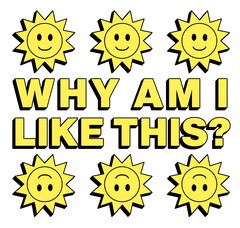It’s a chore to write and a challenge to nail a cover letter. To whom it may concern… Dear hiring manager… Hello, I’m reaching out to express my interest in… Some of the ugliest phrases in the English language, right? Writing a cover letter is, scientifically speaking*, the hardest and most annoying part of the job application process. Toeing the line between professional confidence and unhinged bragging, rote recitation of work experience and quasi-memoir, all while keeping things to a tight single page? What a heady cocktail of tedious and stressful! I’d rather pick lint off of a sweater, watch The Crown, or get into distance running than write a cover letter. Even worse, the economic chaos caused by COVID-19 has left many people without jobs or trapped in jobs they hate but need—and either of those employment situations can make talking up one’s strengths and skills feel impossible.According to the experts, it’s no surprise that we might choose to put off cover letter writing until the last minute or even skip out on applying for a role entirely because the effort doesn’t seem worth it. “[Writing a cover letter] is not something most people do that much, so most people don’t have a ton of experience with it — and comfort usually comes with familiarity,” Alison Green, a columnist who specializes in work-related quandaries (and, lucky for us, contributes to VICE), told VICE. That unfamiliarity, combined with the high stakes inherent in applying to jobs, makes for one shitty task. “You’re looking for a job that you’ll hopefully be at for at least a few years and which will have a huge impact on your quality of life, to say nothing of your income. It’s nerve-wracking!” Green said. Tragically, we can’t just procrastinate our way into a shiny new position at a shiny new workplace, which means that an aversion to cover letters is definitely worth tackling head on. Obviously we don’t have the secret formula for falling in love with the cover letter as a form (and if you do—my DMs are open!). But there are some specific reasons why you might loathe the cover letter process so much, and a few tricks to get yourself writing anyway. If you feel like the cover letters you write are awkward and stilted, then here’s some good news and some bad news. The good news is that you are absolutely not the only one who feels that way. The bad news is that you’re probably right—especially if you’re just using your cover letter to translate your resume into a few paragraphs.“The point of a cover letter is to make a compelling case for yourself as a candidate, totally aside from what’s in your resume,” Green said. “It’s an opportunity to tell an employer more about you than just what they’ll see in your work history. Other things matter too, like work habits, communication skills, drive, people skills, and overall enthusiasm for the job. A good cover letter doesn’t summarize the resume that follows; it adds new details that aren’t on the resume that explain why you’d excel at this job.” Easier said than done, sure—but Green suggested thinking back to past compliments from supervisors when you’re trying to come up with skills to highlight and tying them to an anecdote to make things feel a little more grounded. Anyone can say they are a “team player” who “works well under pressure,” but not everyone can talk about how their kickass presentation sealed the deal with a hesitant client, or brag that they’ve got spreadsheet customization skills that their coworkers have described as “lit.” According to therapist Ashley McHan, depression has a way of magnifying confidence issues, especially the kind that might already be swirling around a less-than-ideal employment situation. “Depression and self doubt can really hold hands,” McHan told VICE. “When we're depressed, we find ourselves in a more of a negative mind space, especially in relation to ourselves.” It can be hard to submit yourself to scrutiny by a stranger when you’re already feeling vulnerable and insecure—but it’s critical to know that others don’t view you the same way you might be viewing yourself. “Whether we are struggling with imposter syndrome, or our mood’s in the dumps and we are feeling more self doubt and experiencing more negative self talk, we have to put it in perspective and remember that we are our own worst critic. We judge ourselves more harshly than others will ever judge us,” she said. Also, rest assured that prospective employers are taking the events of the past year into account when they review your application. “Employers know the pandemic has wreaked havoc on people’s professional lives!” Green said. “If there was ever a time not to worry about any stigma from being unemployed or underemployed, this is it.”So, how do you deal with this stressful, high-pressure, pretty much non-negotiable part of the job application process? Actually take the plunge and do it, especially because putting it off will only make you feel worse down the road. “We get relief in the short term with avoidance, but we're signing up for even more stress and pain later,” McHan said. Avoiding a stressful task by watching Netflix or grabbing coffee with friends is a temporary destresser—but McHan said the ultimate destresser is to stop procrastinating and deal with an unpleasant task head-on, because that’s the function of stress in the first place. “Stress actually moves us through challenges,” she said. “In a way, it can be motivating—it gets us to get things done so that we get out from stress.” When we kick a task down the road because a deadline feels distant or we’re not in the mythical “right mood” to apply to jobs, we’re basically just creating problems for our future selves—and when we’re finally forced to get down to business, “we still have all the same doubts and we still have all the same questions, because we never began,” she said.A cover letter that’s exciting to read might sound like an oxymoron, but there are a few ways to make it less of a slog. Unsurprisingly, that means getting a little help from people who know you, and whose opinions of you aren’t clouded by self-doubt. Green suggested a little mental exercise to help take the pressure off the writing process. “I always tell people to pretend you’re writing an email to a friend about why you think you'd be great at the job,” Green said. “You probably wouldn’t do that by stiffly reciting your work history; you’d talk about what you’re good at and how it lines up with what it would take to do the job well, and how you’d approach the work and why you’re excited about it. That’s a good basis for any cover letter.” You can also go ahead and make the dream of emailing your friends a reality—the people who make up your support system will be more than happy to help you out if you’ve got a little writer’s block about yourself. “Talk to people who will remind you of what you've got to offer,” McHan said. “You can also reflect back on times when you've doubted yourself before and done something anyway. Who hasn’t experienced fear and doubt, right? Remember times that you've experienced fear and doubt and done it anyway, and let that help motivate you to do it again.”
Advertisement
Advertisement
You’re wrong about what a cover letter is actually… for
Advertisement
Depression might be making you feel unqualified
You’re making yourself more anxious by putting it off
Advertisement

